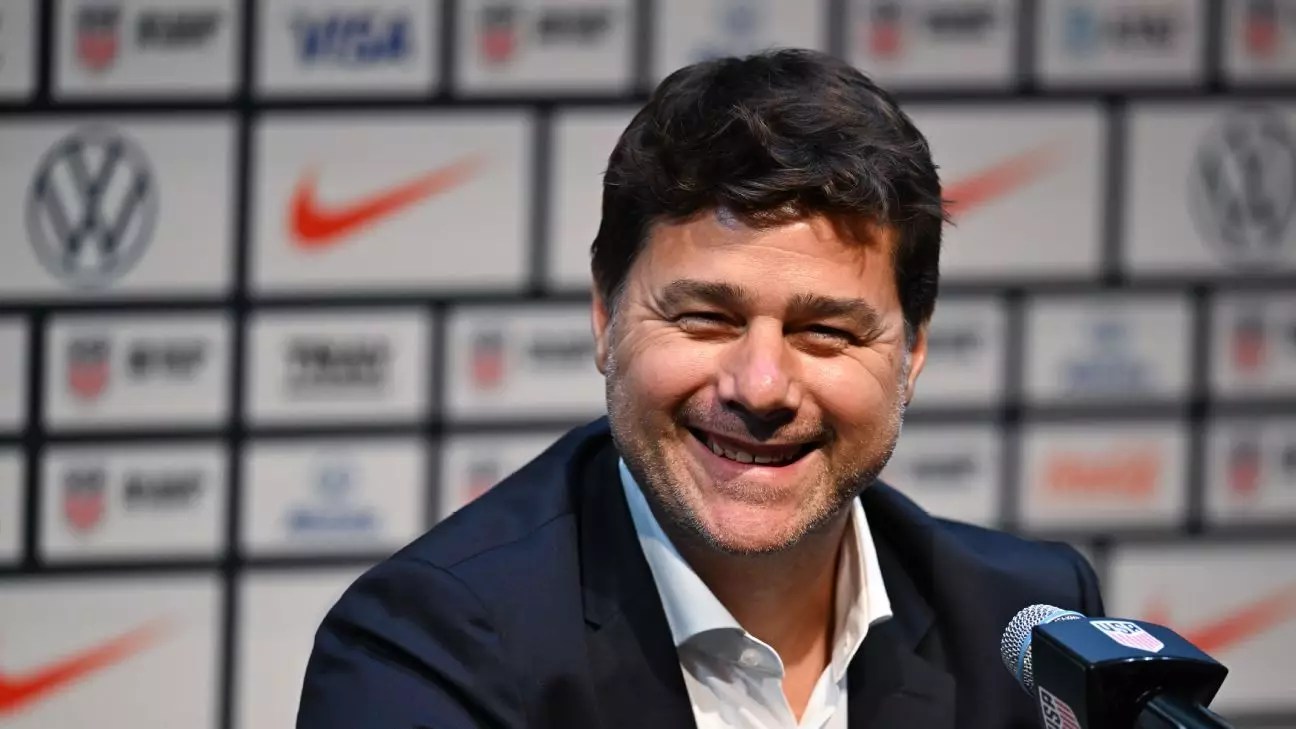The hiring of Mauricio Pochettino as the head coach of the United States men’s national soccer team marks a significant turning point for American soccer. This bold move indicates not only an ambition to excel in the sport but also an intention to elevate the entire soccer environment in the U.S. Chris Richards, a defender for Crystal Palace, emphasized that opting for a world-class coach like Pochettino speaks volumes about the leadership’s commitment to growth and development. Richards stated that while a more conventional choice from within the MLS might have been safer, it is this kind of risk that can potentially yield greater rewards.
It’s clear that U.S. Soccer is no longer settling for mediocrity; they are actively seeking to compete at the highest levels, as evidenced by their decision to enlist a coach with Pochettino’s caliber. The implications of this decision extend beyond just on-field strategies; it enhances the credibility of the national team as they prepare for upcoming competitions, including the monumental 2026 FIFA World Cup, which will be co-hosted by the U.S., Canada, and Mexico. This chance to shine on an international scale offers a fertile ground for cultivating the next generation of soccer talent.
Richards, despite facing injury-induced challenges that sidelined him from Pochettino’s inaugural U.S. squad, is hopeful about the future. He acknowledges that even from the outside, he remains dedicated to supporting his teammates as they transition into a new era under Pochettino’s guidance. His aspirations are not limited to mere participation; Richards expressed a clear intent to pursue victory, a perspective that encapsulates a growing mindset throughout U.S. soccer. The prevailing attitude among players seems to reflect increased confidence, signaling a shift as they prepare for the world’s most esteemed tournaments.
Richards’ perspective highlights a broader narrative within American soccer—the desire to not just compete but to dominate at global levels. This ambition aligns with the collective goals of the youth coming through the ranks, who will look toward role models like Richards and Coach Pochettino. With this coaching appointment, players are encouraged to envision themselves as champions, a mentality that is essential as they work toward competing on the world stage.
Accessibility in Soccer: Bridging the Gap
A significant challenge in the growth of soccer in the U.S. has been the accessibility of the sport. Richards pointed out that while soccer is the fastest-growing sport in the country, barriers such as the “pay-to-play” model inhibit broad participation. High costs associated with travel, training, and equipment mean that many talented players fall through the cracks.
The time is ripe for systemic change to ensure that soccer can be as inclusive as possible. Initiatives that make soccer more accessible could lead to broader participation, which is crucial for the sustainable development of the sport. Richards envisions a landscape in which financial barriers are reduced, enabling more young athletes to engage with soccer without the burden of cost. This change might help cultivate a richer talent pool, eventually enhancing the competitive strength of the national teams.
As U.S. Soccer embarks on this new chapter under Pochettino, optimism surrounds the potential positive changes. The focus on winning tournaments and the development of young talent coincides with the larger goal of transforming societal perceptions of soccer in America. People like Richards and his peers represent a new wave of athlete—driven, passionate, and deeply invested in their sport.
Adding to this dynamic is the anticipated return of key players like Tyler Adams, whose healing process from recent surgeries brings an additional touch of hope. As he aims to rejoin his club and subsequently the national team, Adams represents the resilience and determination that characterize this new generation. With veterans and emerging stars alike coming together, the path is being paved for a more robust U.S. men’s national team.
The appointment of Mauricio Pochettino and the sentiments expressed by players such as Chris Richards signal not just a new coaching era but also a broader ambition for U.S. soccer. The growing pains of leadership changes, injury recoveries, and accessibility challenges must all be navigated as they prepare for the most significant global platform. Ultimately, the call for transformation is clear—this is a time for the U.S. soccer community to unite in building a sustainable, winning culture.


Leave a Reply